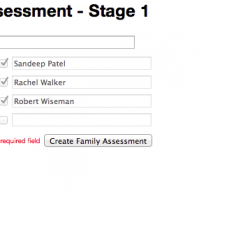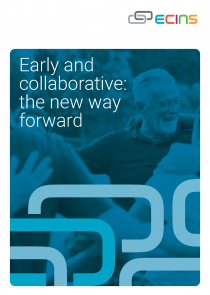With the news that the Government has commissioned a consortium of research bodies to keep track of its Troubled Families Programme, Councils are now tasked with compiling progress reports and supplying comprehensive data and analysis to show how their interventions are producing better outcomes for the families they have identified locally.
Last month we told you about our plans to introduce a Family Assessment tool for practitioners who are using ECINS to manage their local Troubled Families Initiative. We are delighted to say that this has now become a reality and we have now made it live to practitioners.
The ECINS Family Assessment Tool has been created for, and with, the help of Troubled Family co-ordinators and key workers to ensure it meets the needs and challenges of the ‘Troubled Families’ Initiative. The development team has incorporated new functionality and features in recent weeks and it will be continually developed to meet the shifting needs and requirements of our users and those of future users.
“The development of the Electronic Family Assessment on ECINS has been a big piece of work and, as the diagram on the left illustrates, we will continue to work with ECINS’ users to ensure it meets their needs, not just for families, but for other people in the community our users are working with. This now gives users two types of assessment on ECINS with the other being the ASB style assessment that generates a risk score. At ECINS we know that success in the real world of our users means that software development needs to be fast, decisive, practical, implementable and implemented” Gary Pettengell, CEO and Founder ECINS
The new electronic Family Assessment works by giving lead practitioners the ability to create a bespoke assessment template from a library of core questions. This enables them and their colleagues to build a rich and comprehensive picture of the families they are working with, the challenges they face and the differences or similarities between them. The information is recorded so that future assessment reviews can be quickly and easily carried out by duplicating the original assessment and updating the relevant questions. By carrying out assessment reviews at regular intervals practitioners are able to monitor and properly interpret which interventions are working and the type of support required.


